
First virtual UTAR R&D Colloquium
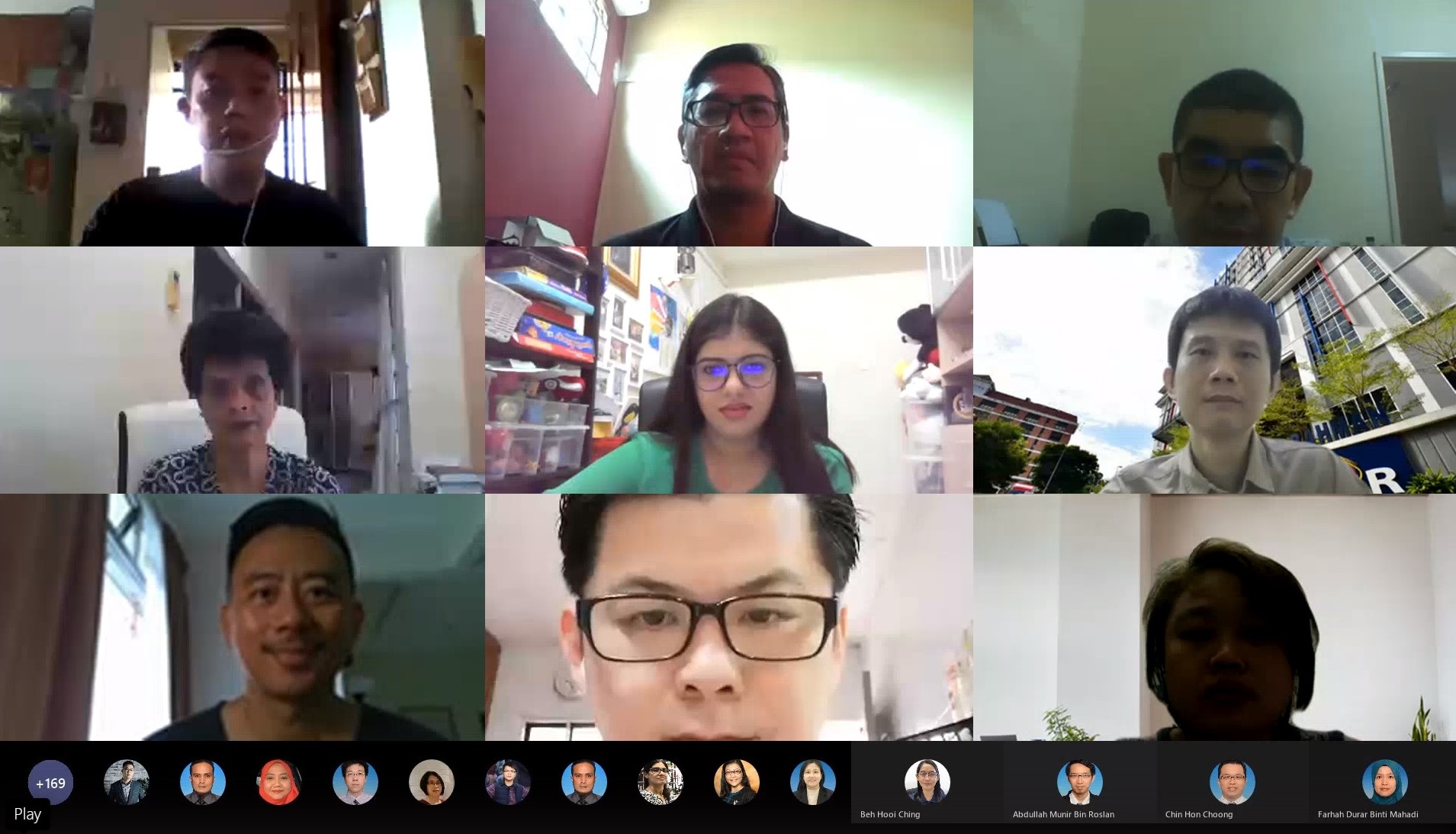
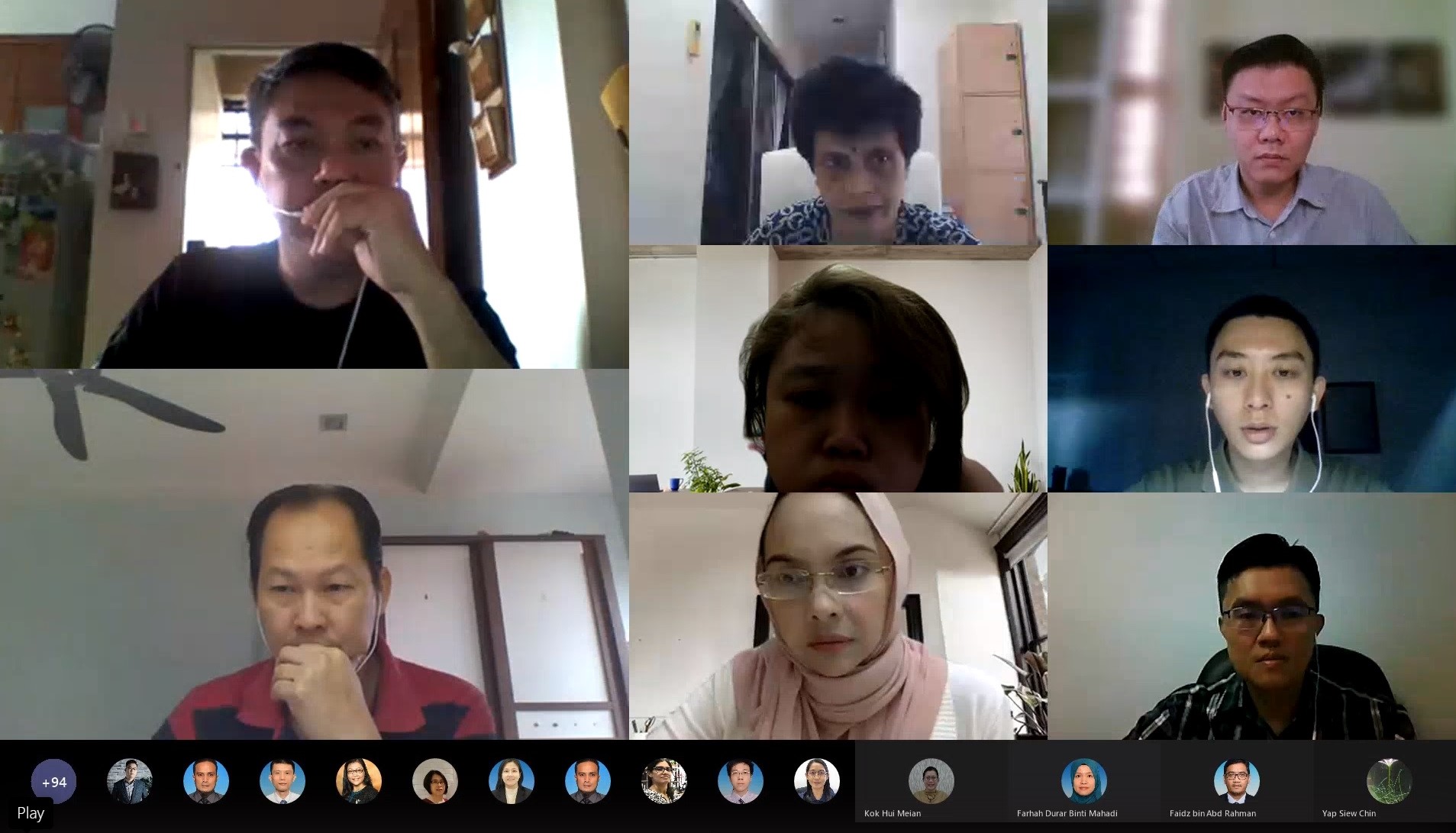
Group photo of some participants
UTAR R&D Colloquium 2020 was organised by the Institute of Postgraduate Studies and Research (IPSR) on 21 November 2020 via Microsoft Teams. The annual event was first held in May 2014. Due to the Covid-19 pandemic, the IPSR decided to organise the colloquium through a virtual platform this year.
The objective of the colloquium was to serve as a platform for all researchers to share their research ideas and enhance more cross-disciplinary research collaborations among the research centres in UTAR. The initiative is in line with one of the action plans devised under Focus Area 3: Research and Development of the UTAR’s 10-year Strategic Plan 2013-2022 (i.e. Strengthening of Cross Disciplinary Research Centres).
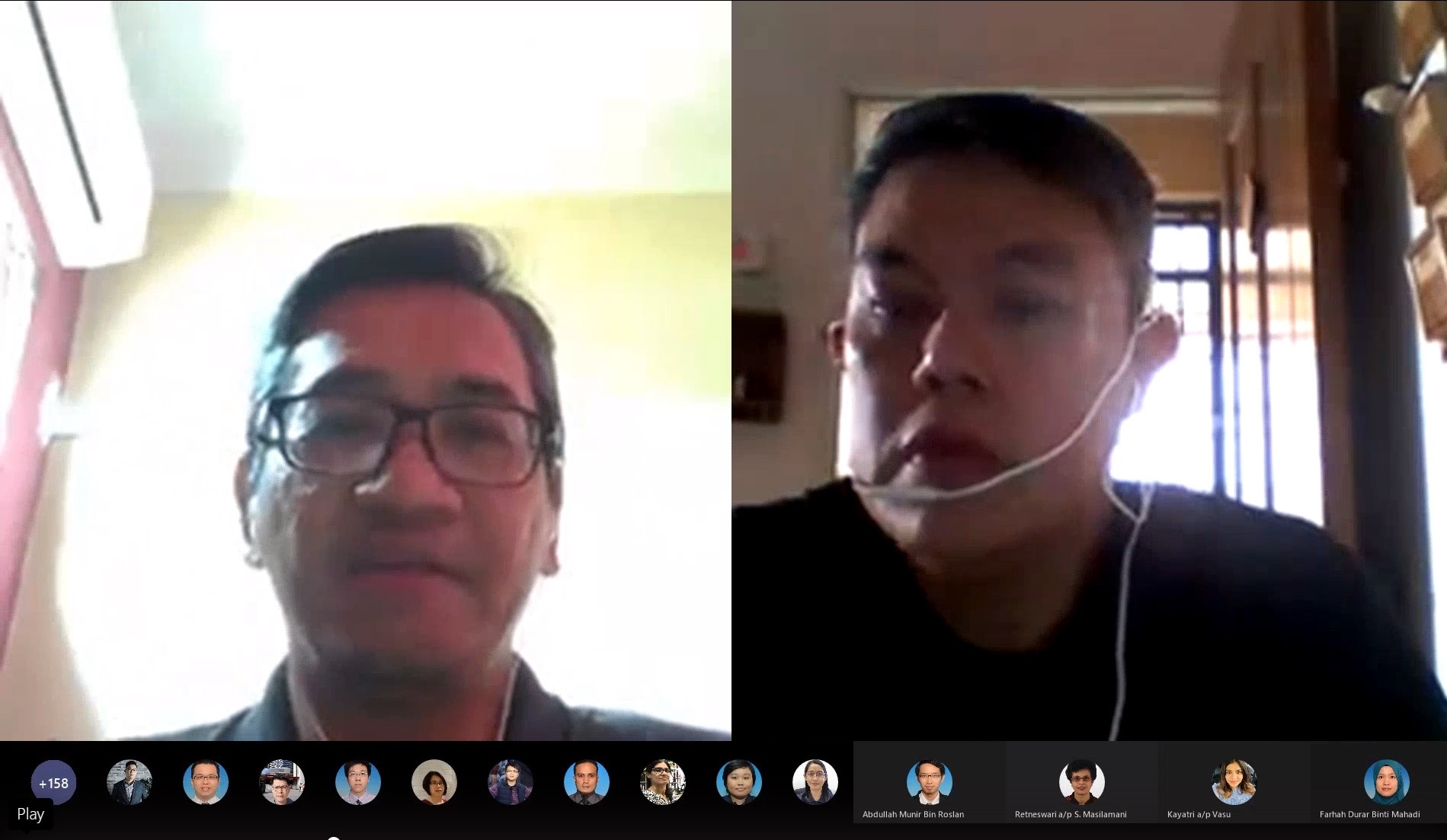
Prof Faidz (left) and Dr Aloysius Yapp (right) welcoming the participants
In his opening speech, UTAR Vice President for R&D and Commercialisation Prof Dr Faidz bin Abd Rahman welcomed the participants and said, “Exchanging ideas is the key to successful research. The colloquium is one of the platforms that the University creates for our researchers from various backgrounds to come together to meet, present, discuss and brainstorm on the things we can do together to help or give impact to the community which in line with the University’s vision —‘to be a global university of educational excellence with transformative societal impact’. Currently, we are in the year where we go head to head with the pandemic, and it has been a very challenging year for R&D because the R&D activities had to be stopped or paused because of the restriction in our movement. UTAR R&D Colloquium is usually organised twice per year, but unfortunately due to the pandemic, we have to cancel the physical colloquium which tentatively took place in April/May. I am thankful to IPSR staff for their hard work in organising this virtual R&D colloquium.”
He was also glad that the themes for the parallel sessions were closely related to the current needs such as AIoT, healthcare, innovative technologies, edu-tourism, sustainable cities, and COVID-19 pandemic which are important and worthwhile to study. Meanwhile, he revealed, “We are currently working together with the faculties and research centres on the R&D roadmap for the next 10 years (2022 - 2032).” He wished all the participants to have a fruitful presentation and brainstorming session before ending his speech.
The colloquium then commenced with its parallel sessions which were held concurrently with its respective subthemes through different channels. The first theme was ‘AIoT in Healthcare’ and it was chaired by Centre for Healthcare Science and Technology Chairperson Dr Tee Yee Kai. The session consisted of presentations by Faculty of Medicine and Health Sciences (FMHS) academic Dr Yan Naing Soe on “The Study of Management Modalities and Quality of Life of Surgical Patients in a Palliative Care Unit'', FMHS academic Dr Kang Waye Hann on “Prevalence of Hypogonadism among Type 2 Diabetic Males and its Associated Factors”, Centre for Stem Cell Research Chairperson Prof Dr Alan Ong Han Kiat on “A lot for Personalised Cancer Diagnosis, Prognosis and Drug Therapy” and Lee Kong Chian Faculty of Engineering and Science (LKC FES) academic Dr Chee Pei Song on “Polymer for Healthcare Applications”.
The second theme was ‘Revolutionising Socio-Economic Development with Innovative Technologies’, chaired by Centre for Business and Management Chairperson Dr Lee Voon Hsien. Presenters for this session were Faculty of Business and Finance (FBF) academic Sai Mei Ling on “The Impact of Entrepreneurial Competencies on Firm's Sustainability Growth. A study of Malaysian Women Entrepreneurs”, LKC FES academic Dr Mohammad Babrdel Bonab on “Revolutionizing Timber Industry with Innovative Technologies”, Faculty of Information and Communication Technology (FICT) Deputy Dean Ts Dr Cheng Wai Khuen on “Personalized Recommendations in a Smart Community” and Faculty of Science (FSc) academic Dr L. Annaletchumy on “Integrative Herbs for Hypertension among Adults Living in Kinta Valley, Perak”.
The third theme of the parallel session was ‘Challenges of Edu-Tourism during COVID-19 Pandemic, Strategy and Social Impact’. It was chaired by Centre for Learning and Teaching Chairperson Dr Wei Chooi Yi, and it saw presentations by Faculty of Engineering and Green Technology (FEGT) academic Ir Dr K. Chandrasekaran on “Marvel of Engineering Education”, Faculty of Creative Industries (FCI) academic Dr V. Kayatri on “Self-Regulated Learning Development in Undergraduate ESL Writing Classrooms: Teacher Feedback vs Self-Assessment”, Faculty of Accountancy and Management (FAM) academic Liew Ping Xin on “Prospects of Virtual Reality (VR) on Education Tourism”, and Centre for Immersive Technology and Creativity Chairperson Dr Aloysius Yapp and FCI academic Lim Chai Kim on “Development of a 3-Dimensional (3D) Virtual Guided Walkthrough (VGW)”.
‘Sustainable Cities and Communities: Towards Energy and Resource Efficiency’ was the theme for the fourth session. It was chaired by Centre for Sustainable Architecture Chairperson Dr Lim Poh Im. The presenters included Timbalan Pengarah, Bahagian Penyelidikan & Pembangunan, PLANMalaysia TPr Dr Chee Ping Ngang on “Implementation of the SDGs in Malaysian Spatial Planning Initiatives”, LKC FES academic Loo Shi Han on “Energy Efficiency and Design of Buildings: A Review of Existing Policies and Regulations in Malaysia”, Centre for Sustainable Mobility Technologies Chairperson Assoc Prof Ts Dr Bernard Saw Lip Huat on “Shared Space in Street Design” and Ir Dr K. Chandrasekaran on “Power Quality Administration for Smart Grid Network”.
The last theme for the parallel session was “COVID-19 Pandemic: Impact of COVID-19 on Health and Healthcare Delivery”. It was chaired by Tun Tan Cheng Lock Centre for Social and Policy Studies Chairperson Assoc Prof Dr Chin Yee Mun. The topics presented included “The Impact of COVID-19 on Health and Healthcare Delivery” by former UTAR academic Dr Lee Kai Wei, “Impacts of COVID-19 on the Chinese Community in Malaysia” by FCI academic Kenneth Lee Tze Wui, “The Impact of COVID-19 on E-Commerce Ecosystems in Malaysia” by FAM Deputy Dean Dr Hen Kai Wah and “Individual Factors Affect University Students' Online Learning Passion” by FCI academic Dr Soon Thean Bee.
The sessions were then followed by a multi-disciplinary research proposal presentation. It was presented by all the chairs of the five sessions on their respective subthemes.
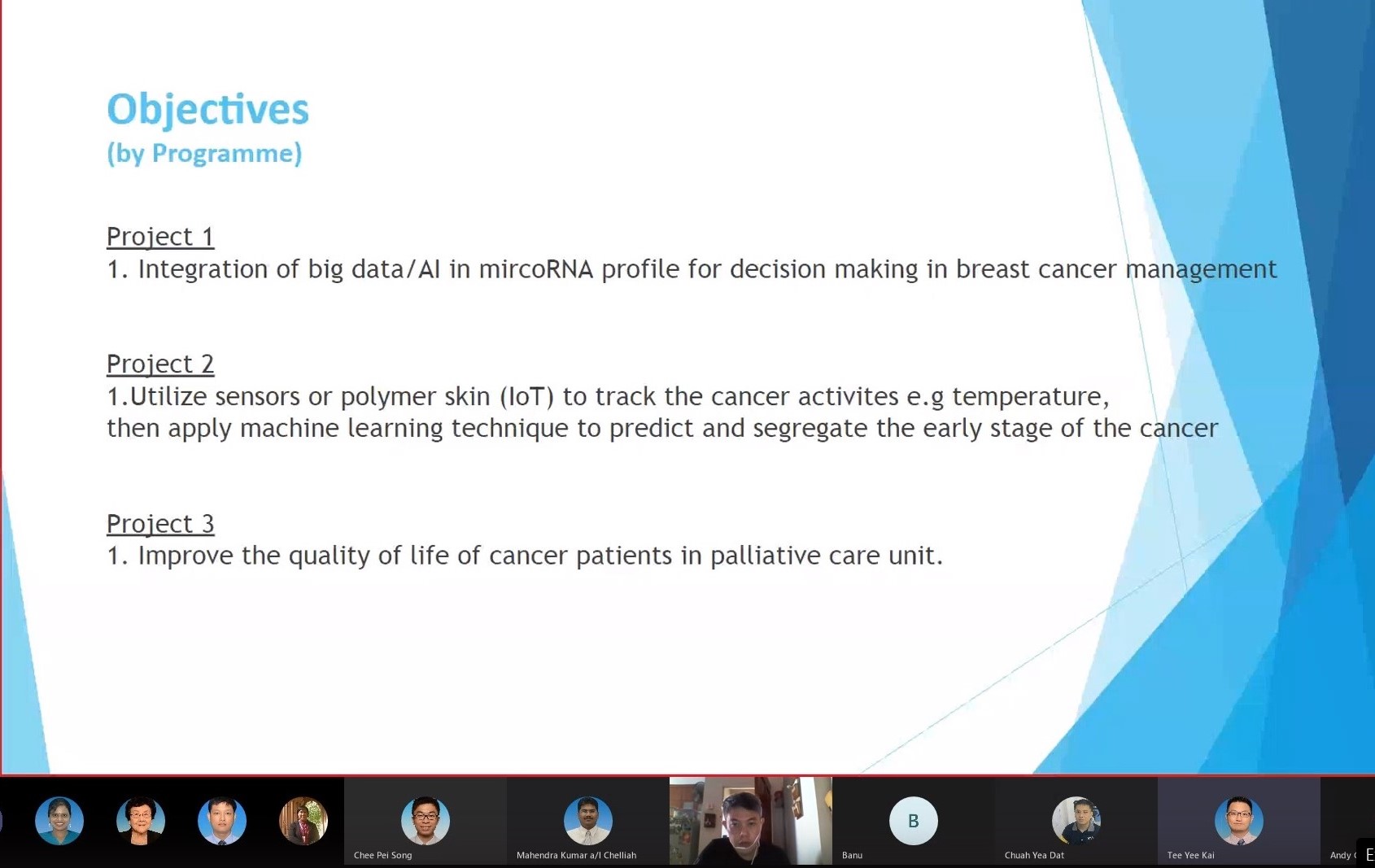
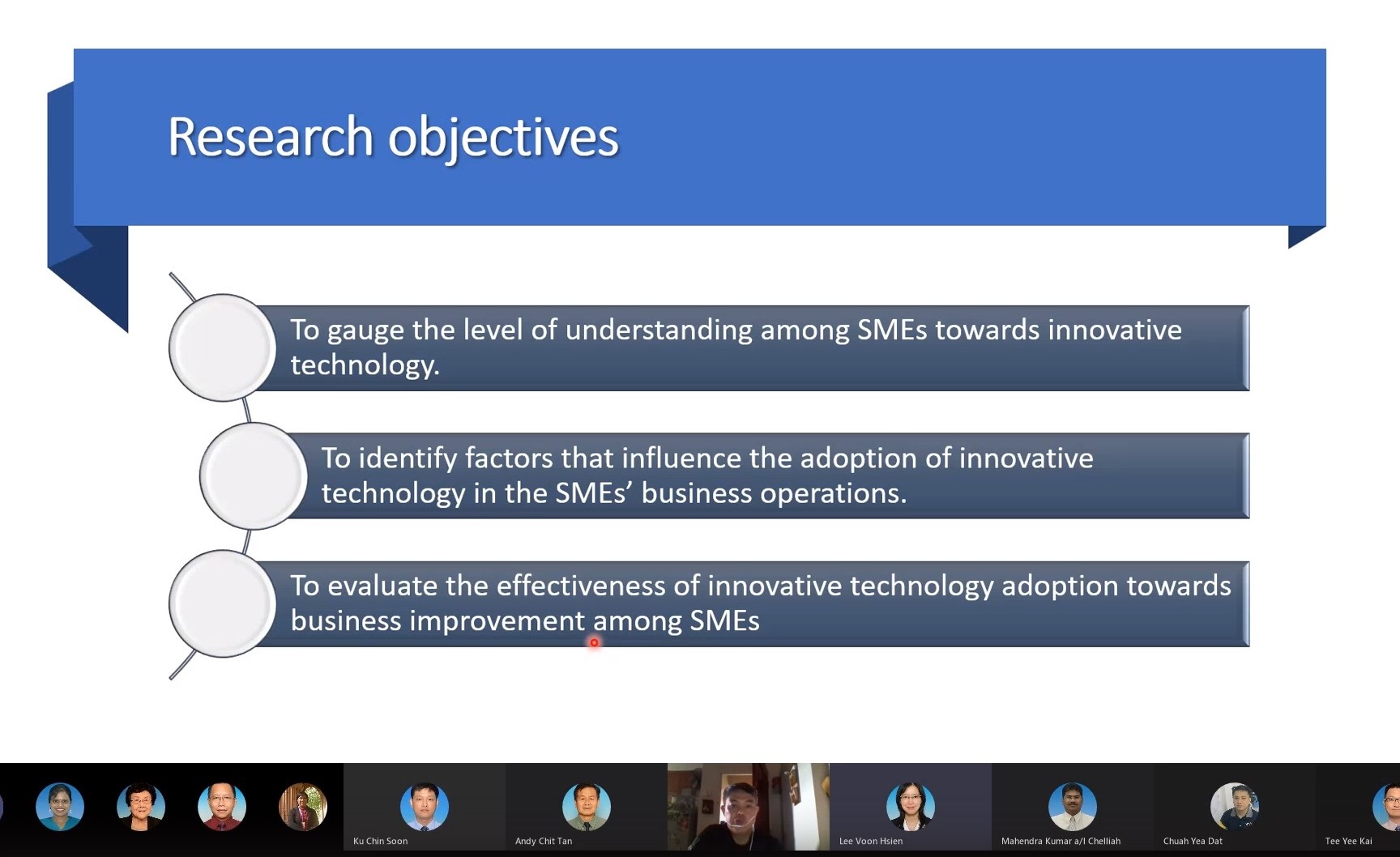
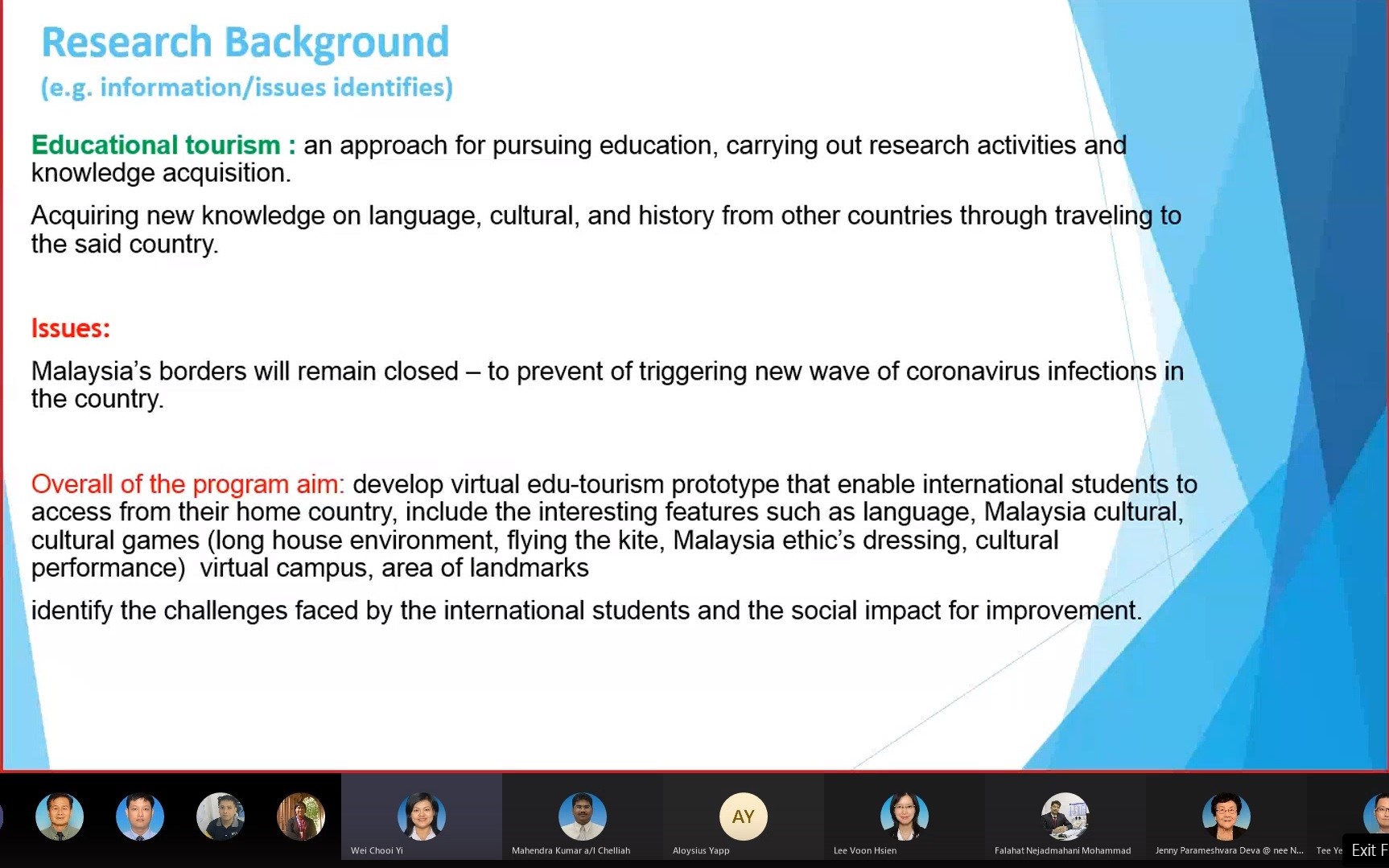
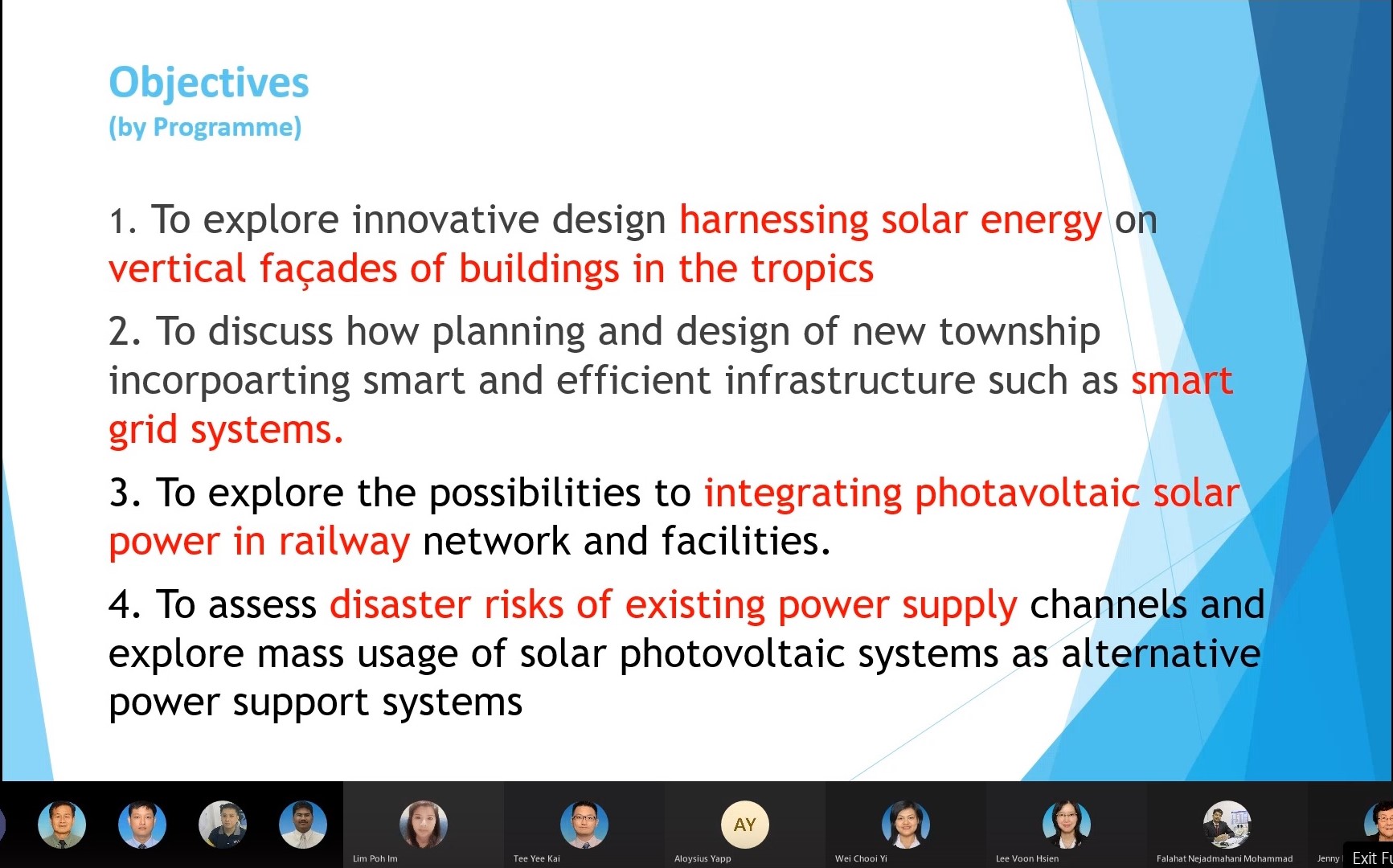
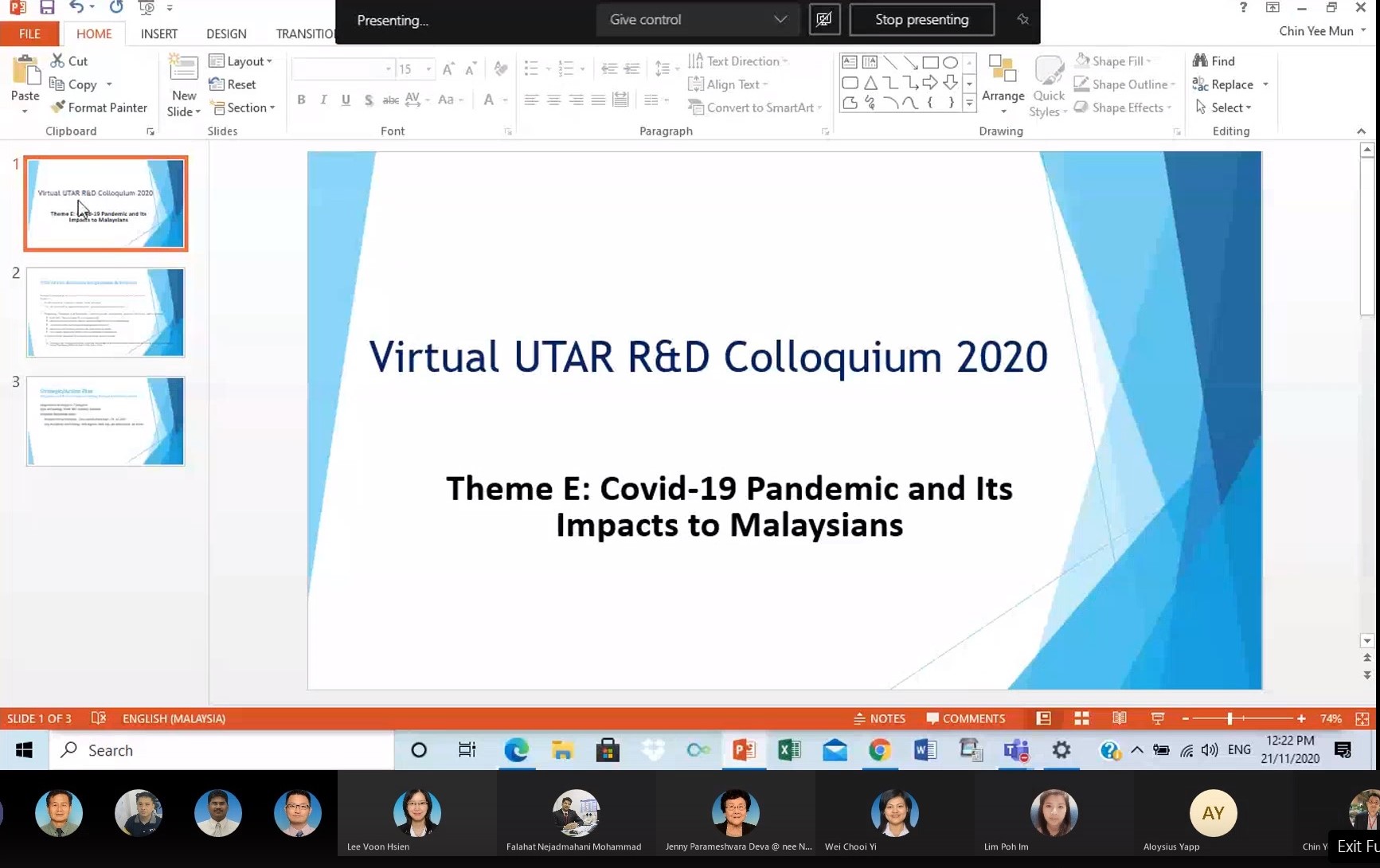
Dr Tee, Dr Lee, Dr Wei, Dr Lim and Dr Chin (from up to down) presenting their team’s discussion
The curtains were finally drawn after the closing remark by IPSR Director Assoc Prof Dr Yong Thian Khok. Dr Yong expressed his gratitude to all the chairs, presenters and participants for their support and participation.
Dr Yong encouraging researchers to submit their proposal to apply for UTARSRF
“I am glad to see that there are more than 180 participants in this year's colloquium despite going virtual. I think this is a very good start for this kind of online discussion. You all may continue to utilise this kind of technology to conduct meetings and further discussion. With merely 2 hours, each team was able to come out with good ideas, and the most important thing next is to come out with an action plan, so that all these ideas can be gathered to form a detailed proposal to look for potential funding applications. Besides that, researchers may look for IPSR and DCinterNet on matters relating to local and international collaboration arrangements. The teams who are interested in UTAR Strategic Research Funding Scheme (UTARSRF) are encouraged to submit their proposal to IPSR. We are looking forward to seeing your proposal,” he concluded.
![]()
© 2020 UNIVERSITI TUNKU ABDUL RAHMAN DU012(A).
Wholly owned by UTAR Education Foundation Co. No. 578227-M LEGAL STATEMENT TERM OF USAGE PRIVACY NOTICE